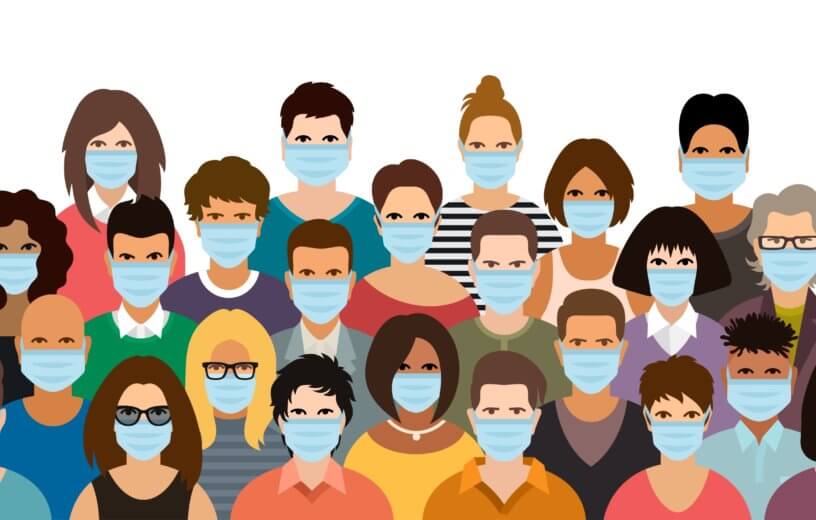NEW YORK — Face masks are not only uncomfortable for many people, but some also argue that they interfere with our ability to communicate with others. When it comes to the legal system however, a new study finds face masks may actually be helping people spot lies in court. An international team says when witnesses wear face masks, it makes it easier for people watching the testimony to pick out the lies in their statements.
Professor Aldert Vrij from the University of Portsmouth and Dr. Maria Hartwig from John Jay College of Criminal Justice examined how changes in courtroom procedures during the coronavirus pandemic are impacting juries’ lie detecting skills. These changes include people wearing face masks in court and some trials switching to virtual recordings of witnesses.
While conventional wisdom would lead many to think face masks block out the facial expressions that give away lies, study authors find it actually has the exact opposite effect.
“In some ways we deliver good news. It does not seem that the measures to counter the spread of the COVID19 virus will negatively impact juries. Provided jurors are able to clearly hear the defendant and their speech is not muffled by the mask, there is no reason for concern,” says Prof. Vrij in a university release.
“In other ways we draw attention to fundamentally problematic aspects of lie detection, in particular, the fact that non-verbal behavior is not helpful. It may suggest that the future lies in exploring how to translate science based interviewing and interrogation protocols to the courtroom, to draw more accurate lie detection results from jurors.”
Good liars know how to exploit facial expressions
The researchers reviewed hundreds of studies studying deception. They found that facial expressions and other forms of non-verbal communication are actually unreliable measures of how deceitful someone is being. Moreover, masking these actions seems to improve a person’s ability to tell the difference between the truth and lies.
Looking at a collection of studies examining how well people pick up on deception through non-verbal behavior, Prof. Vrij and Dr. Hartwig found participants only spotted the lies half of the time. The team concluded that while some behaviors can appear more suspicious, liars know this and use other gestures to make themselves appear more genuine.
Only one of the studies the team reviewed specifically examined how face masks impact court cases. That study found depriving non-verbal behaviors was beneficial for jurors. Researchers studied how niqabs (a garment that covers the face of Muslim women) affect the ability of jurors to pick up on false statements. Results revealed that observers were more capable of detecting lies from defendants wearing a face covering.
Prof. Vrij and Dr. Hartwig also conclude there is no evidence that virtual courtrooms are hindering an observer’s ability to spot deceptive statements in video chats. However, the team acknowledges their findings do have some limitations.
“With only one existing study on how face coverings impact lie detection, it is clear more research needs to be done to address questions and concerns around how the pandemic is impacting the justice system,” Prof. Vrij concludes.
The findings are published in the Journal of Applied Research and Memory and Cognition.
